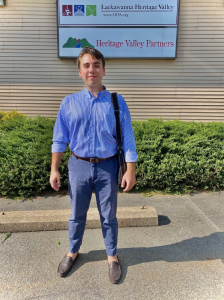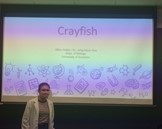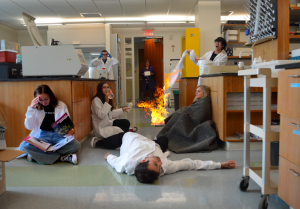The most rewarding aspect of my CMEP internship has been connecting with people who are passionate about working for peace in Israel/Palestine or are interested in learning more. In personal emails, I appreciate the responses from interested individuals. One gentleman learned I go to Scranton and excitedly told me about the benefits of his own Jesuit education. In emailing various individuals about planning informative and transformational trip to Israel/Palestine, I am excited for all those who express interest in trip planning. After my incredible study abroad experience to the Holy Land, I know how important such a trip can be for one’s faith and awareness of the need for peace in the land. I’m further encouraged by the number of Americans who really do care and want to work for peace in Israel/Palestine. Seeing people outside CMEP as invested as those working here, I am hopeful that peace is possible.
While this hope makes my efforts rewarding, the slow work towards peace makes my internship challenging. I will finish at CMEP in just a week, but the work of CMEP will continue for years to come. My impatient heart seeking justice and peace now hates the long-term planning and the fact that so many non-profits are working on various aspects of peace in the Middle East but there is so much still to be done. I find it difficult to trust that my work this summer matters when I (obviously) do not see any immediate, positive, largescale change. However, I know that with dedicated individuals like those at CMEP and those educating themselves on Israel/Palestine, one day peace will not be a mere possibility, but a reality.
Kathleen Wallace ’23
Philosophy, Theology





